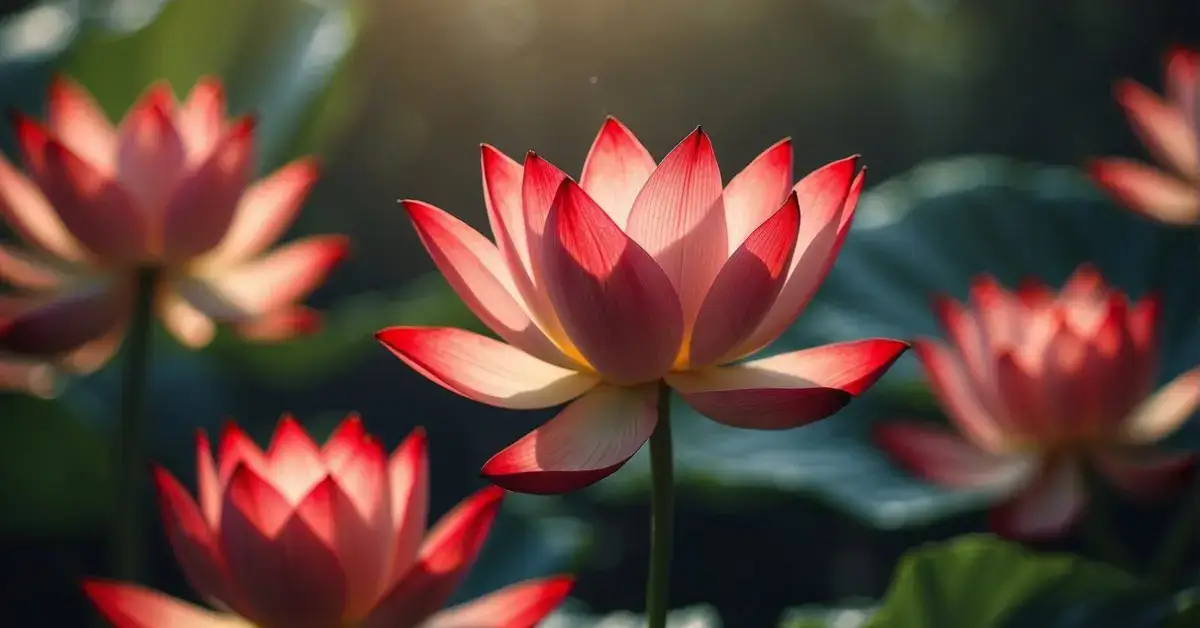Explore the fiery depths of symbolism as we unravel the spiritual meaning of red. From its association with passion and vitality to its deeper spiritual significance across cultures and traditions, this article delves into the profound depths of this vibrant hue. Join us on a journey through history and symbolism to uncover the rich spiritual meanings behind the color red, inviting you to embrace its energy and power in your spiritual journey.
Understanding Spiritual Meaning of Red
Exploring the color red opens a window into how it resonates with energy and vitality across various contexts. I find that this vibrant hue holds deep spiritual significance that varies widely among different cultures and spiritual traditions.
Historical and Cultural Significance
In my delve into the historical context, I’ve discovered that red has always been more than just a color. It’s a symbol that pulses with life and passion. My research reveals that many cultures view red as the essence of life – blood being a primary example – which perhaps explains its ubiquity in cultural rituals and iconography. In Christianity, red is symbolic of the blood of Christ, representing sacrifice and redemption. Meanwhile, indigenous cultures might use red ochre in ceremonies, signifying the earth’s sacredness and fertility.
Red in Major Spiritual Traditions
In spiritual traditions such as Hinduism and Buddhism, red takes on multiple layers of meaning. Notably, Hinduism associates red with purity, love, and feminine power. It’s the favored color of Durga, the warrior goddess, imbuing the shade with strength and protection. During ceremonies and festivals like weddings, red is prominent, signifying both beauty and spiritual awakening.
In Buddhism, red is one of the five colors of prayer flags, representing the element fire and the purification of karma. When I consider Buddhist monastic robes, red signifies the quest for enlightenment, with the vibrancy of red calling to mind the powerful energy of spiritual practice.
Across these spiritual traditions, the vibration of red is consistent – it implies an active participation in life’s ebb and flow, and a connection to something greater than ourselves. Red’s symbolic presence is a thread that connects our spiritual experiences across time and place.
Symbolic Meanings and Associations

Red is a color that resonates with the deepest parts of our psyche, often symbolizing intense emotions and pivotal concepts in human culture. It’s vital for me to note how its shades influence our psychology and spiritual experiences.
Psychological Impact of Red
Red’s influence on our emotions is significant. It’s a color that can instill feelings of passion and love, often associated with Valentine’s Day and romantic contexts. Yet, it’s also linked with anger and danger, illuminating stop signs and alarms, prompting caution. In fashion, wearing red can communicate confidence and strength, demonstrating an energetic presence. On the positive side, red is seen as a sign of prosperity and respect, with its vibrant hue often used in celebrations to signify luck and prosperity.
Red in Dreams and Spiritual Signs
Dreaming of red can be a powerful message. It might signify a drive for personal growth or a reflection of love and passion. Spiritually, red can signal the importance of maintaining balance in life. For instance, it’s associated with the root chakra, which represents our life force and a sense of grounding or stability. Red may appear as a sign of protection or a warning, advising us to proceed with caution. Additionally, red can embody the concepts of death and rebirth, indicating transformative periods. It’s often used in rituals to invoke strength and motivation, ensuring the cycle of positivity in our journey.
Practical Applications and Effects

In exploring the spiritual meaning of red, let’s consider how it can be practically applied in our daily lives and the effects it has on our mind and body.
Using Red in Spiritual Practices
I use red to stimulate the root chakra, which is the energy center associated with survival and grounding. In practices like meditation or healing, incorporating red elements such as red candles can help enhance feelings of security and connection to the earth. Feng Shui recommends red as a color that attracts positive energy and can be used to invigorate an area, especially the south sector, which is related to fame and recognition. When I infuse red into my environment, I notice a boost in my self-confidence and strength.
Red’s Impact on Mind and Body
Red has a profound effect on my health and vitality. Its bold hue is linked with excitement, energy, and determination. When I see red, it increases my awareness and helps me focus my attention on the present moment. This color is powerful—it can symbolize the fire of the Holy Spirit or the intensity of a sexual awakening. It promotes action and courage, urging me to tap into my inner wisdom and manifest my dreams. Red is also associated with the power of creation, evoking a sense of bravery and confidence. As with all things, it’s important to use red with intention, as an excess may lead to feelings of aggression or rage.
My Experience on Spiritual Meaning of Red

In my journey exploring spirituality, red has repeatedly surfaced as a color of significant depth and intensity. I’ve noticed that when I wear red, there’s an unmistakable surge in my confidence and a sense of empowerment. This aligns with the belief that red symbolizes courage and action, as mentioned in a spiritual interpretation.
- Passion: My own creative endeavors seem to gain an edge when I’m surrounded by red. It’s as though the color fuels my passion for my projects.
- Energy: On days that feel sluggish, adding a dash of red to my environment injects a burst of energy that propels me forward.
There have been times when red has felt overwhelming. During such moments, I understand why red is also connected with anger and danger. It’s a dual-sided color, both motivating and cautionary. However, for me, red mostly personifies a vivacious spirit.
I’ve noticed that others are often drawn to the vibrancy when I incorporate red into my life. Whether it’s clothing, decor, or art, red grabs attention and stimulates conversation—a fact backed by research on its stimulating effects on the metabolism.
Here are the ways red has influenced my spiritual experience:
| Aspect | Influence of Red |
|---|---|
| Confidence | Heightened |
| Creativity | Stimulated |
| Energy Levels | Increased |
| Interactions | More Engaging |
My experience has taught me that red is indeed a powerful color with a complex spiritual meaning. It invites us to embrace life fully, with all its ups and downs, while kindling our inner fire.
FAQ – Spiritual Meaning of Red

Does red mean powerful?
Absolutely! Red is frequently associated with power and strength. Cultures around the world regard red as a color that can express authority and confidence. The color’s vibrancy commands attention and can symbolize both physical and emotional potency.
Is red positive energy?
Yes, red often embodies positive energy. It’s linked to passion, love, and enthusiasm, promoting a sense of vitality and ambition. This energizing color is thought to stimulate emotional responses and can be used to signify joy and prosperity.
Which color attracts money?
Many people believe that green is the color traditionally associated with money and abundance. In color psychology, green relates to stability and endurance, but it’s also the hue of currency in many countries, further cementing its connection to financial matters.
If you liked this blog post about the topic: Spiritual Meaning Of Red, don’t forget to leave me a comment down below to tell me about your experience with it. Or have a look at my other articles:
- Spiritual Meaning of Pink: Exploring Symbolism
- Spiritual Meaning of Yellow: Sunny Significance
- Grasshopper Spiritual Meaning: Unveiling the Symbols
- Spiritual Meaning of a Bumblebee: Uncovering Symbolism in Nature
- Deer Spiritual Meaning: Unveiling Nature’s Gentle Symbolism
Feel free to also check out our other Articles from the category “Spiritual Meaning“ and don’t forget to follow us on Pinterest.


